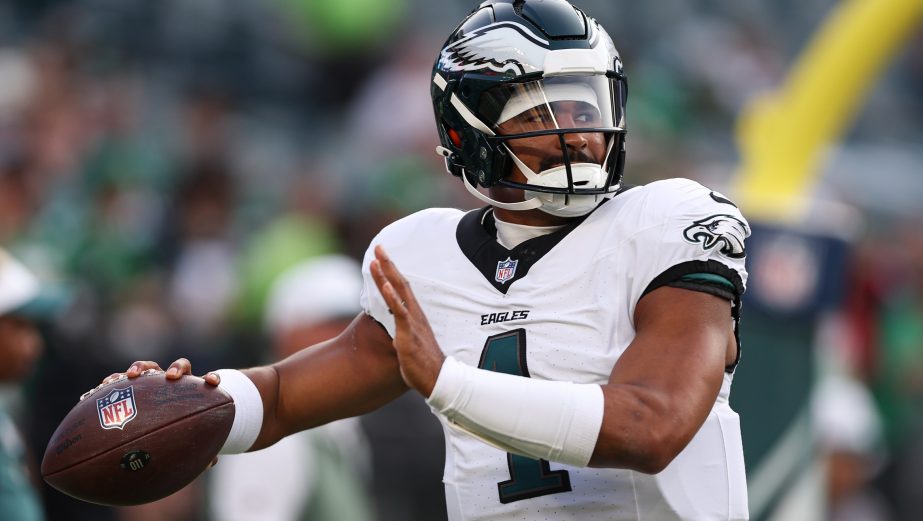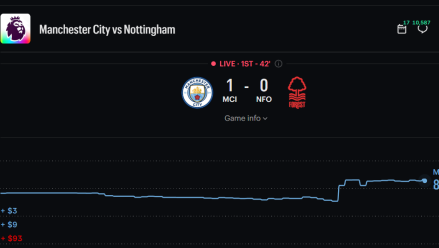Robinhood is suing state gaming authorities in both Nevada and New Jersey, arguing that, as prediction market Kalshi has received injunctions to offer sports event contracts in those states, the stock trading app should be allowed to offer those contracts, too.
Robinhood filed for lawsuits against authorities in both states on Tuesday, in U.S. District Courts for Nevada and New Jersey, making similar arguments in both cases.
In both New Jersey and Nevada, Kalshi – in which Robinhood’s “predictions hub” is available – sued and successfully won injunctions from the district courts, preventing the states from enforcing cease-and-desist orders, at least for now. A Maryland district court denied Kalshi’s request for an injunction, but the attorney general there will not enforce its cease-and-desist until an appeals court rules on the issue.
Robinhood said that when it received the cease-and-desist orders, it stopped offering event contracts on sports in those states. However, the filing added that after Kalshi won its injunctions, both the Nevada Gaming Control Board and the New Jersey Division of Gaming Enforcement told Robinhood that they would continue to treat any sports event contracts offered through its prediction hub as illegal forms of sports betting.
In both states, Robinhood said it contacted the state gaming authority, arguing it should be allowed to reactivate its sports event contracts, but it said neither would agree to refrain from enforcing their state’s gambling laws against the business.
show_temp-2As a result, Robinhood said it had “no choice but to file” the two lawsuits.
Only difference is ‘user interface’
Robinhood argues that both courts have already determined – in issuing their initial injunctions – that the federal Commodity Exchange Act (CEA) most likely preempts state gambling laws. If the CEA does preempt state gambling laws, then no state can enforce those laws with regard to transactions that take place through a “designated contract market” (DCM) registered with the Commodity Futures Trading Commission (CFTC), such as Kalshi.
Robinhood then argued that its offering is “no different from when a Kalshi customer places an order for an event contract trade through her Kalshi account, which is then executed on Kalshi’s Exchange,” and the only difference is the “user interface.” Robinhood is registered as a “futures commission merchant” (FCM), meaning that it directs its customers toward Kalshi’s markets and earns a fee in doing so.
As a result, it said, New Jersey and Nevada should also not be allowed to enforce their gambling laws against Robinhood, as a facilitator of Kalshi transactions.
“A state cannot circumvent the exclusive jurisdiction of the CFTC by enforcing state law against an entity involved in facilitating a transaction when the state has been enjoined from enforcing state law against the entity involved in executing that same transaction,” Robinhood said.
Robinhood offers sports bets in 49 states
Robinhood has already started offering Kalshi’s sports event contracts again in the two states. This week, it announced the launch of football event contracts, which will be available in 49 states. The one state where they are still unavailable is Maryland, where Robinhood still does not offer sports event contracts of any kind.
Kalshi had also received a cease-and-desist in Maryland, and sued to prevent its enforcement. However, unlike in New Jersey or Nevada, a judge rejected the bid for an injunction. Robinhood is currently not suing the state of Maryland or its state gaming authorities.
Kalshi continues to offer sports event contracts in Maryland as the state agreed to pause enforcement of its cease-and-desist letter against the prediction market while the Fourth Circuit Court of Appeals considers its appeal.
Robinhood processed $1 billion worth of event contract trades during the three months to June 30, according to its chief financial officer Jason Warnick. That means that more than half of the volume on Kalshi contracts during that period came form Robinhood.
‘Decent chance,’ but not a ‘slam dunk’
Given that the two Robinhood cases rely on similar arguments that Kalshi used to win injunctions, Robinhood may appear to be in a good position to get similar rulings.
Andrew Kim, appellate litigator at Goodwin Law, said the chances of an injunction are strong, especially if the case is decided by the same judge that awarded injunctions to Kalshi. But he cautioned against treating a win for the stock trading app as a sure thing.
“I think there’s a decent chance that Robinhood gets a preliminary injunction, although it’s not a given,” he said. “There may also be questions about why Robinhood waited so long to seek a preliminary injunction, and whether an injunction is actually necessary. So I wouldn’t say it’s a slam dunk.”
He also said that in Nevada, the wait for a decision in a case brought by Crypto.com – which is a DCM, like Kalshi and received its own cease-and-desist order – is worth noting, in contrast to the “speedy decision that Kalshi received,” suggesting judges may not automatically follow the lead of the Kalshi case.






